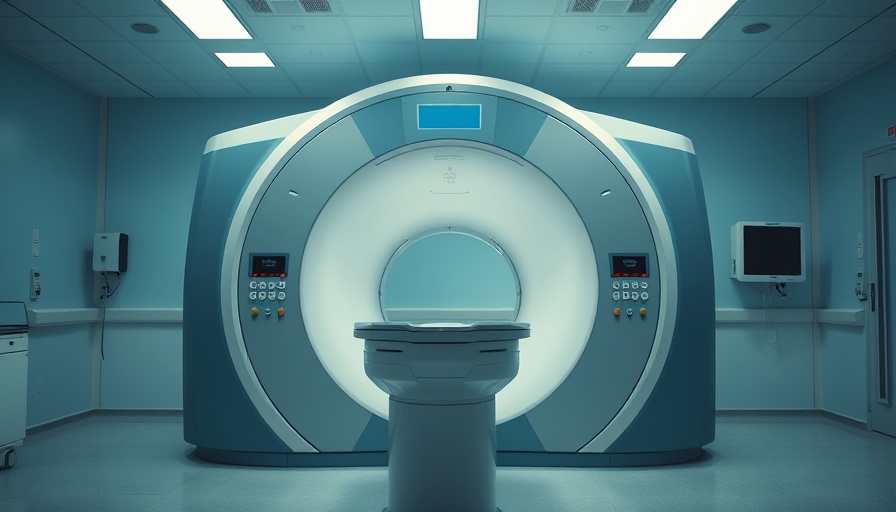
Understanding Ezra's Revolutionary MRI Technology
The recent FDA clearance granted to Ezra's AI-powered MRI cancer screening tool, the Ezra Flash AI model, represents a significant milestone in enhancing cancer detection technologies. This approval allows Ezra to provide full-body MRI scans faster, at a lower cost, and with improved image quality. The aim is to launch a 15-minute, $500 full-body MRI by 2026, a goal that reflects the shifting landscape in both medical technology and patient care.
How Ezra Flash AI Enhances Cancer Detection
The Ezra Flash AI has advanced features that directly impact image quality, particularly for MRIs of the neuro region, abdomen, and pelvis. One of the critical improvements is the reduction of noise within images, which is pivotal for maintaining diagnostic integrity. This means that radiologists can provide clearer analyses, leading to more precise insights for patient diagnoses.
According to Dr. Daniel K. Sodickson, chief scientific advisor at Ezra, this technology enables faster, more accurate early cancer detection, allowing both patients and doctors to make informed healthcare decisions quickly. Notably, about 6% of Ezra's scanned members have identified potential cancer, underlining the AI's effectiveness in early detection.
The Economics of Early Detection
For practice owners, especially in concierge medicine, understanding innovations like the Ezra Flash AI is not just a matter of staying current; it's about financial viability and patient engagement. With the potential for lower-cost imaging, clinics that adopt such technology could see a favorable impact on their bottom line while offering enhanced services to their patients. This integrative model of AI in imaging, analysis, and reporting could ultimately establish a competitive edge for practices that prioritize early cancer detection.
The Broader Implications of AI-Powered Imaging
As AI continues to permeate various aspects of healthcare, tech-savvy concierge practice owners need to consider the long-term benefits of incorporating AI-driven solutions. Not only does this align with growing consumer demands for advanced healthcare services, but it also offers an opportunity to improve operational efficiency. AI technologies can streamline workflows, reduce scan times, and enhance patient care—all factors that can be marketed as unique selling points for concierge practices seeking to maintain their stature in the market.
Future Predictions: What Lies Ahead for AI in Medical Imaging
Looking forward, the integration of AI within medical imaging is expected to accelerate. With ongoing innovations and advancements, the future of early cancer screenings might not only involve full-body scans at an even lower cost but potentially real-time analysis with AI feedback during the imaging process. This could pave the way for a new standard of care in oncology, enabling earlier interventions and ultimately improving patient outcomes.
Navigating the Regulatory Landscape
While the strides made by Ezra’s AI technology are commendable, it’s essential for practice owners to stay informed about the regulatory landscape surrounding AI medical devices. Understanding the implications of new approvals, like the recent FDA clearance for the Ezra Flash AI, allows for better strategic planning and operational integration within practices.
The path for AI in healthcare may be filled with challenges, yet the opportunities here stand as pivotal cornerstones for the future of personalized patient care. As technology continues to evolve, so too must the ways in which medical practices engage with these advancements.
In conclusion, the emergence of AI-powered tools such as Ezra Flash AI highlights a pivotal shift in cancer screening technology that not only promises enhanced diagnostic capabilities but also opens new avenues for concierge practices to differentiate themselves in a competitive marketplace. As we step into an age where technology drives patient care, understanding these changes becomes essential for success.
 Add Row
Add Row  Add
Add 




Write A Comment